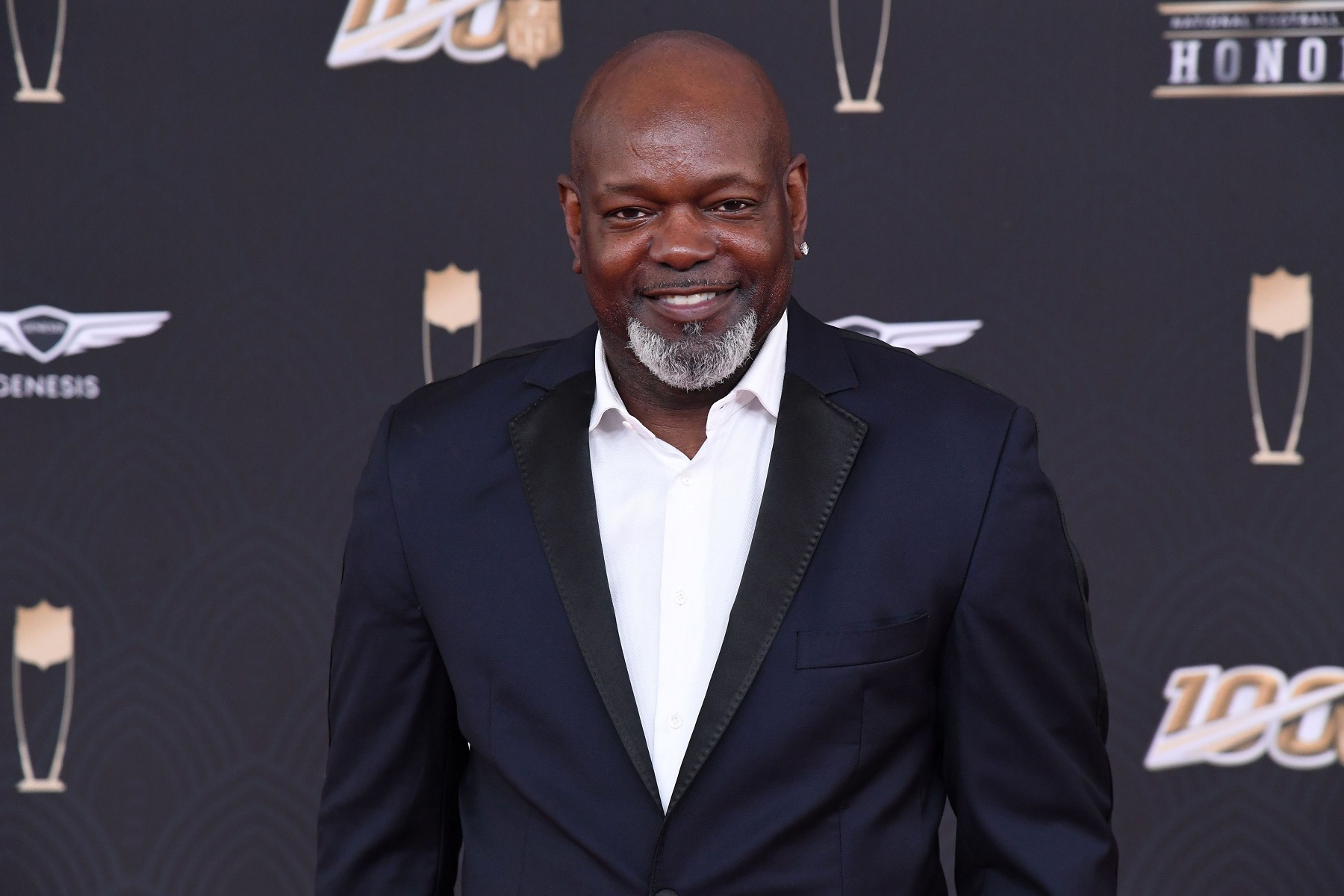NFL
Emmitt Smith Just Told Jerry Jones To ‘Cut It Out’

Establishing himself as an NFL legend during a brilliant 15-year career hasn’t precluded Emmitt Smith from being victimized in the area of social justice. That is why the retired running back regrets not being more vocal around Jerry Jones and the Dallas Cowboys in the 1990s.
In fact, Smith has some strong words for Jones, whose commitment to the recent social justice efforts has been called into question.
Emmitt Smith to Dallas Cowboys owner Jerry Jones: ‘Cut it out’
RELATED: Jerry Jones Surprised by Lower TV Ratings and Unsure If It’s Result of NFL Boycott or Another Reason
Other than Tom Brady’s debut in a Tampa Bay Buccaneers uniform, nothing was talked about more in football circles leading up to Week 1 games than the social justice movement and how players would handle the national anthem. In some cases, entire teams remained in the locker room. Other instances saw players opt to kneel on the sideline.
In the case of the Dallas Cowboys in their opener against the Los Angeles Rams, only Dontari Poe chose to kneel. The defensive lineman is in his first year with the Cowboys after leaving the Carolina Panthers. In choosing to kneel, he became the first Dallas player to do so.
Owner Jerry Jones had previously outright barred Cowboys players from doing anything that he perceived as disrespectful to the flag, eventually relenting to allow individual choices.
“Jerry needs to cut it out. He needs to cut it out,” retired running back Emmitt Smith told the Fort Worth Star-Telegram. “Don’t distort the message because of the flag. It is bigger than the flag. That flag ain’t hurt one soul as it waves. It is there as a reminder of what many men and women, black and white, died for.
“Just like those Super Bowl trophies, they are there as a reminder of what you have done in history that was good … (and) why we fight for freedom and what we stand for as Americans. And we don’t stand for this B.S.”
Smith told the paper he has not spoken with Jones about the anthem issue, nor has the Cowboys owner contacted him.
Emmitt Smith explains why he regrets not acting sooner
RELATED: Jerry Jones Comes Up Nearly $5 Billion Short of the Richest NFL Owner in 2020
Emmitt Smith offers a straightforward answer as to why he wishes he’d been more vocal about speaking against racism during his pro career, which began in 1990 with 13 seasons with the Dallas Cowboys and roughly coincided with Jerry Jones’ purchase of the team.
“I have been a victim of it,” Emmitt said. “It’s not like I am talking because something happened to George Floyd. Something happened to me more than one time, a couple of times it happened right here in Dallas.”
Smith didn’t delve into details of the incidents, but he emphasized that it hits hard when it happens in real life. “I’m talking from experience, not something I read in a book and saw on CNN.”
But the country has changed, sparked in large part by Floyd’s death on May 25 at the hands of Minneapolis police officers. Athletes have been among those at the forefront of calling out issues and demanding answers this summer. Their message has given strength to the generation behind them.
Smith’s son, current Stanford freshman E.J. Smith, took a knee during his high school’s commencement ceremony, which took place in June at AT&T Stadium, the home of the Cowboys.
The memorable time he did take a knee while in uniform
Emmitt Smith can say that he did take a knee once during a Cowboys game. The message he sought to deliver was different, but the circumstances were somewhat similar. The fuss wasn’t about the U.S. flag but rather about the star at the 50-yard line — which means more than a little to hardcore Cowboys fans.
Terrell Owens, playing for the San Francisco 49ers, caught a touchdown pass during a Sept. 24, 2000, game in Dallas and raced to midfield to pose defiantly on the star logo. Predictably, boos rained down on Owens, whom Jerry Jones would sign to play for the Cowboys for three seasons beginning in 2006.
Later in the game, Smith scored a touchdown for Dallas. This time it was his turn. He, too, raced to midfield, where he kneeled and slammed the ball to the turf as the crowd roared in appreciation.
Smith didn’t have to pause to think when asked if he would kneel for the national anthem on the home field today.
“If I can defend the star, I definitely can defend the right for everybody to have equal justice.”
Emmitt Smith











